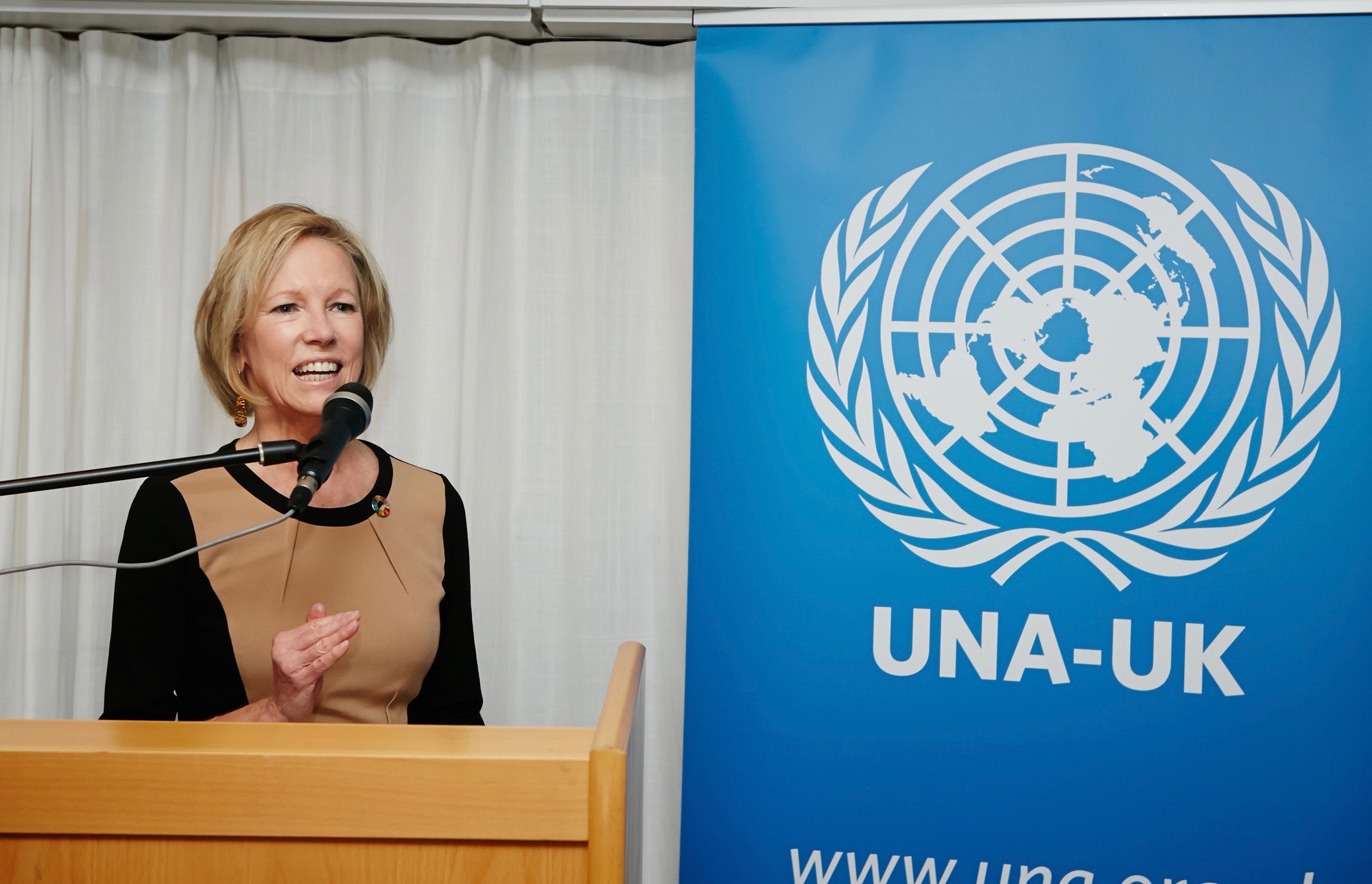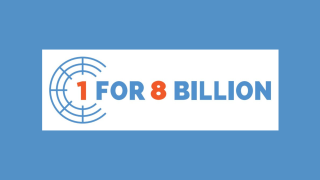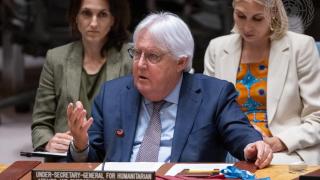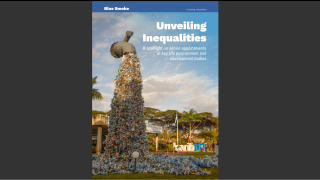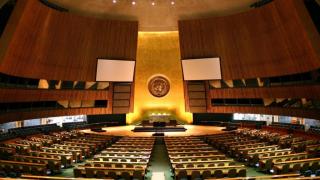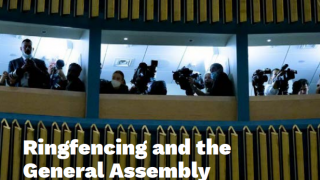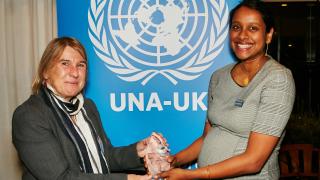
As part of its UN Day celebrations, UNA-UK was delighted to award this year's Sir Brian Urquhart Award for Distinguished Service to the UN to Professor Christine Chinkin, who served on the 2009 Human Rights Council Fact Finding Mission on Gaza, as well as the Kosovo Human Rights Advisory Panel.
The award was presented at UNA-UK's annual United Nations Day reception on Monday 24 October, hosted at the Danish Embassy in London. Named in honour of a former UN civil servant whose service to the UN spanned four decades, UNA-UK’s Sir Brian Urquhart Award recognises the outstanding service to the UN of a British citizen.
This year's recipient, Professor Christine Chinkin, is Emerita Professor of International Law at the London School of Economics, where she is also Founding Director of the Centre for Women, Peace and Security. A barrister and member of Matrix Chambers, Professor Chinkin has made a tremendous contribution to the UN and its principles in numerous capacities, including as an academic – with influential works on human rights, and women’s rights in particular – and as a practitioner, especially in the areas of justice and accountability.
Professor Chinkin has shown courage in taking on some of the most difficult tasks in connection with the UN. In her role on the 2009 Human Rights Council Fact Finding Mission on Gaza, she contributed to the investigation into alleged violations of international human rights law and international humanitarian law in the Palestinian territories. The report accused both the Israel Defense Forces and the Palestinian militants of war crimes and possible crimes against humanity. It recommended that each side openly investigate its own conduct, and to bring the allegations to the International Criminal Court if they failed to do so.
Her work on the Human Rights Advisory Panel for the UN Mission in Kosovo (UNMIK) has spanned the past six years. The panel was one of the first human rights complaints mechanisms to examine alleged violations by an international mission, and it has been vital in its work to ensure that international human rights standards are upheld at all times by UN personnel. After considering over 500 cases, Professor Chinkin and her colleagues concluded that the UN had failed to comply with human rights standards and recommended it pay adequate compensation to the complainants.
As a founder of the Centre for Women Peace and Security at LSE, Christine Chinkin has not only been central to raising the issue of gender-based violence in conflict as a threat to international peace and security, but also the lack of accountability for crimes of sexual exploitation and abuse.
UN Day reception
After a warm welcome speech from the Danish Ambassador to the UK, Claus Grube, the Chair of UNA-UK, Lord Wood delivered a short introduction on UN Day and the work of UNA-UK.
Before the presentation of the award, Kathy Calvin, President and Chief Executive Officer of the United Nations Foundation (pictured above), gave a keynote speech in which she recognised the work of UNA-UK, and the recent success of its 1 for 7 Billion campaign in "advocating for – and achieving – a more open and inclusive selection process for the next Secretary-General."
Ms Calvin reflected on the United Nations' major achievements of 2015 - pointing to the landmark Paris Agreement on climate change and the Sustainable Development Goals (SDGs) as examples of "what happens when the world comes together through the UN". However, she noted that the new Secretary-General will take office at a time when governments are increasingly inclined to "close their doors" and withdraw from global cooperation:
But we know that global problems don’t stop at borders, and partnership among people and nations will be key to finding solutions and realising the promise of the SDGs and the Paris Agreement to make a difference in people’s lives.
Ms Calvin emphasised the importance of the United Nations as a forum for international dialogue and action. She set out the UN Foundation's ambition to make the case for an effective UN throughout the United States, stressing the need to engage young people in global issues and pointing to the UN Foundation's campaign, 'Vote like the world depends on it', which encourages "globally-minded millenials" to vote in the upcoming US election.
The Sir Brian Urquhart award was then presented to Professor Chinkin by UNA-UK Executive Director Natalie Samarasinghe, who also spoke about the positive impact of UNA-UK's 1 for 7 Billion campaign and emphasised the urgent need to push for an effective intergovernmental system at a time of of big power tensions and divisive national politics. Natalie noted that this year, when strengthening the UN is more important than ever, the award should honour an individual who represented "a critical friend" to the Organisation.
In her acceptance speech, Christine thanked UNA-UK for the honour and spoke in greater detail on her work. She considered that greater accountability by the United Nations is one of the most crucial areas for reform, as the Organisation’s credibility, legitimacy and effectiveness are severely damaged when it fails to comply with its own human rights standards.

